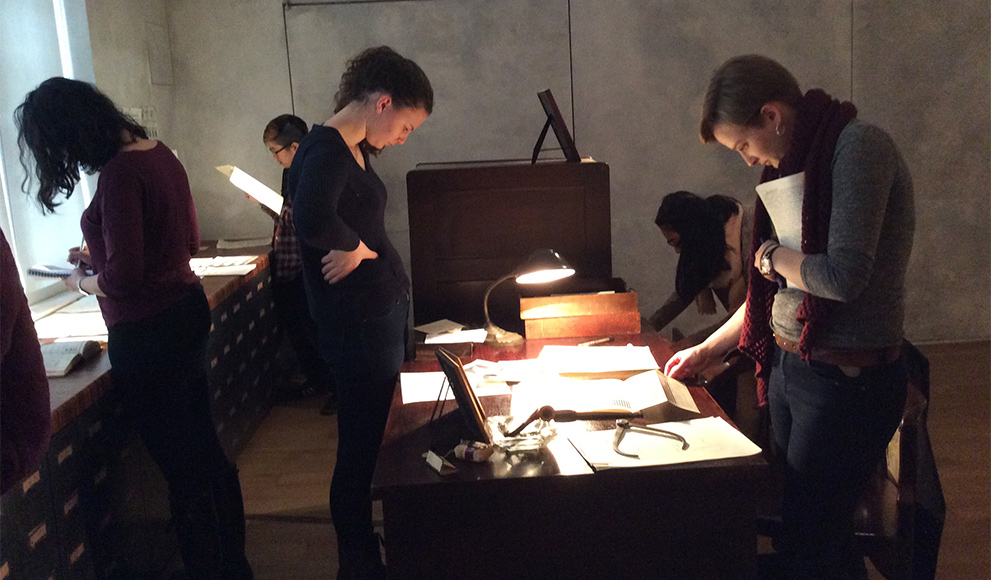Course Used Theatre to Study the Reproductive Eugenics Movement in the Early to Mid-20th Century United States

It all started with a play. Last year, Irene Mata, associate professor of women’s and gender studies, and Charlene Galarneau, assistant professor in the same department, were carrying out their usual ritual of sipping coffee and writing together when Galarneau pulled out a copy of a play she had recently received in the mail. The two began discussing the work, You Wouldn’t Expect… by Marilynn Anselmi, which examines the forced sterilization of residents of North Carolina in the early- to mid-20th century. Soon, the idea for a class that used the play as a focal point was born.
Mata and Galarneau received a team-teaching grant from Wellesley’s Committee on Educational Research and Development. Their brainchild, (Im)Morality on Stage: Repro-Eugenics in Twentieth-Century United States, synthesized history, gender studies, literature, theatre, and discussion of public policy (via readings, a field trip to New York, and various guest speakers) into a more comprehensive view of the reproductive eugenics movement in the United States. The class was offered as a spring 2015 seminar.
The first weekend of the course, students took a field trip to New York University’s Asian/Pacific/American Institute to view its exhibit Haunted Files: The Eugenics Record Office. The exhibit recreated a 1920’s North Carolina eugenics office, complete with replicas of some 4,000 individual records.
“We had just started the class, and we had only had a few readings,” Mata said. “The exhibit was very important because it historically situated the eugenics record office [and] because it recreated that space in ways that very much encouraged students to actively engage with those histories. Students got to sit in desks, they got to rifle through files... [Being in the exhibit] was just such a powerful teaching moment.”
The course culminated in a visit from Elaine Riddick, a survivor of North Carolina’s forced sterilization program, who spoke with students about her experience. Riddick was one of the lead activists in getting the state of North Carolina to pay financial reparations to victims of forced sterilization. Other guest speakers included social justice activist Anu Yadav and You Wouldn’t Expect… author Anselmi. The students also staged their own production of the play for the Wellesley community.
Olivia Duggan ’17 said she felt moved to take the course because of its interdisciplinary approach to history. “I was intrigued by the unusual synergy of theatre and public health that this course entails,” Duggan said. “I think theatre is an excellent outlet through which to promote activism and inspire social change.”
By Katelyn Campbell ’17
